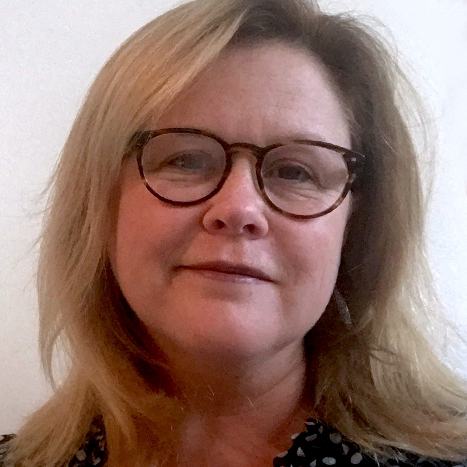Perspective: Rural Mothers with Substance Use Disorders Often Struggle to Access Care. Wider Adoption of Tailored Telehealth Can Help
August 14, 2020
Jennifer Rogers
Denise Raybon

Women in rural areas often struggle to access care during and after pregnancy for a variety of reasons—from a shortage of hospitals and obstetric providers to poor transportation and socioeconomic disparities. COVID-19 is adding to that struggle, as women navigate uncertainty over how to safely access prenatal care and other health care services. At the same time, another health crisis in rural America—opioid misuse and overdoses—continues to claim lives, adding yet another risk.
How can we ensure rural women navigating motherhood in these difficult times are getting the care they need? The answer may lie with tailored patient-centered telehealth services. While we know many health systems adopted some form of telehealth in response to the Covid-19 pandemic, there are still many that have lagged behind on implementation and expansion of their services. Yet there are good reasons to continue expanding telehealth over the long term to perinatal women. Virtual services can be effective in delivering routine perinatal health services, such as lactation support, postpartum mental health, contraceptive care, and substance use disorders.
There are many examples of promising practices to reach rural pregnant women and new mothers, including Text4baby and Pacify. However, for women with substance use disorders, these types of virtual care delivery innovations have not been widely developed or evaluated.
To broaden our understanding of the issue, Altarum conducted qualitative research in West Virginia on the needs of perinatal women with substance use disorders. Women in our focus groups explained that they wanted to access support services and resources through multiple avenues such as text, phone calls, and video. They also wanted in-person and virtual provider and peer support.
There are opportunities to improve and expand telehealth in rural areas that combine these various options and preferences. We must invest in telehealth, not only because of the special challenges that rural mothers face in accessing treatment, but that all new mothers face in balancing their health needs with the all-consuming job of caring for a newborn. In many cases, new mothers just don’t have time to drive more than 30 minutes to access perinatal services.
How do we expand such services? It’s important to remember when creating a telehealth operation that rural communities are not monolithic in structure or makeup, so evaluation research is key to ensuring that virtual health care services are tailored to meet the needs of pregnant and parenting women, including those with substance use disorders. When researching, designing, and evaluating telehealth, it’s also important to assess patient experience, quality, cost, access, and efficiency and gain provider and patient input to understand how easily a program can be implemented, how well a program works, and how well a program will be accepted and widely used by its target populations.
Current telehealth measures tend to focus on compliance rates, retention, and patient satisfaction. While these metrics are important, it is also critical that we take a deeper look at the user experience among specific sub-groups to understand the extent to which currently available telehealth services are not only meeting their expectations but truly meeting their needs. We can then translate this research into practical, concrete recommendations for health care providers and organizations.
To learn more about our solutions for rural perinatal women and virtual care and telehealth, contact one of our experts below.
Altarum is a nonprofit organization that works with federal and state agencies and foundations to design and implement solutions to improve the health of individuals with fewer financial resources and populations disenfranchised by the health care system. We achieve measurable results by combining our expertise in public health and health care delivery with technology, workforce training and continuing education, applied research, and technical assistance. Our innovative solutions lead to better health for beneficiaries and better value for payers.

Perspective

Jennifer Rogers - MPH
Program Director, Reproductive and Sexual Health
Areas of Expertise- Reproductive and Sexual Health
- Maternal and Child Health
- Training and Facilitation
Jenn oversees a portfolio of women's health and reproductive and sexual health projects and policy initiatives. She is an experienced leader with over eighteen years of government, consulting, and non-profit experience working to improve the rights, health, and wellbeing of underserved and marginalized communities. She holds a master's degree in public health with a concentration in maternal and child health from Boston University.

Denise Raybon - MPH
Program Director, Maternal and Child Health
Areas of Expertise- Maternal and Child Health
- Health Equity
- Training Development and Delivery
Denise oversees and provides strategic direction for Altarum’s Maternal and Child Health portfolio of work. She also serves as director of the Early Childhood Systems Technical Assistance Coordination Center (ECS-TACC) and provides training, strategic planning, and facilitation support across a host of other initiatives. Denise is passionate about equity and amplifying the voices of underserved and marginalized populations. She holds a master’s degree in public health from George Washington University.